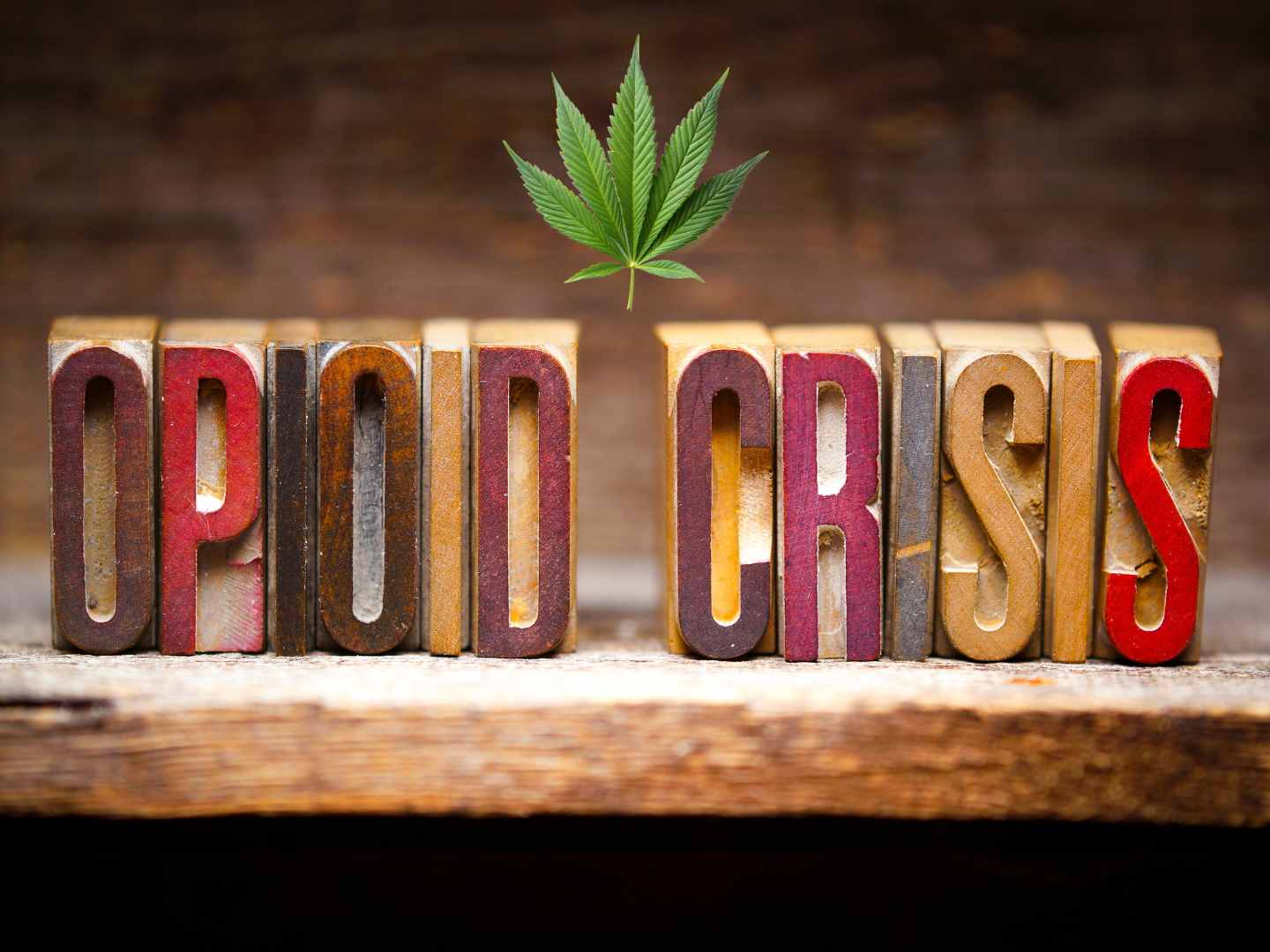Study Finds Cannabis Has ‘Great Deal Of Potential’ To Treat Opioid Use Disorder

Newly published research combining an academic literature review with a survey of university students suggests that cannabis could play a powerful role in reducing harm associated with opioid use disorder. Despite varying perceptions and knowledge about the plant, the study highlights promising evidence for cannabis as a tool in managing opioid dependency and reducing related risks.
The Case for Cannabis in Harm Reduction Models
"Upon a review of the literature, it is reasonable to conclude that cannabis has some efficacy in the setting of opiate maintenance, as well as other therapeutic uses,” states the new paper. This assessment comes in the context of public concerns over opioid overdose rates and the potential rescheduling of cannabis. As such, the authors foresee an increase in cannabis use within harm reduction models.
The review delves into research on cannabis as a substitute for opioids and other substances, noting that cannabinoids may reduce cravings and alleviate withdrawal symptoms related to opioid use. Some self-reported data further suggest that individuals are already substituting opioids with cannabis to manage symptoms more safely.
The Therapeutic Potential of Cannabis for Opioid Addiction
“Current research suggests that cannabis has a great deal of potential for opiate-related harm reduction and as a substitute therapy,” writes Clark Furlong, author of the study and a graduate student at Augsburg University. His thesis cites evidence that cannabis can amplify the analgesic effects of opioids, potentially easing pain without building tolerance or dependence. Additionally, Furlong references research in animal models showing cannabinoids' ability to alleviate withdrawal symptoms, with anecdotal human data providing further support.
“Cannabis could have the potential to decrease adverse outcomes and reduce drug-seeking behavior in patients struggling with opioid addiction,” the study posits. This suggestion points to cannabis as a possible means to not only address opioid-related symptoms but also reduce behaviors that often lead to overdose or relapse.
Balancing Benefits and Risks of Cannabis Use
While cannabis use carries its own risks, the paper acknowledges that these are often less severe than those associated with opioids. Moreover, the risks are complex and may vary by individual. For example, some people use cannabis to manage depression, while for others, its use could precede or exacerbate depressive symptoms.
The study calls for more nuanced research into the benefits and risks of cannabis, arguing that while it may help some, it could pose harm to others. On the whole, however, the evidence suggests that cannabis-related risks are far less severe than those posed by opioids.
The Need for Alternative Approaches in Opioid Addiction Treatment
The study criticizes the stagnation in treatment approaches for opioid use disorder, despite years of record opioid-related deaths. “Treatment has not changed,” the paper states, “nor has there been much effort into pharmacological advancement in opiate addiction interventions.” Methadone, a common component of medication-assisted treatment, carries significant side effects, including sleep difficulties, issues with sexual performance, and even cardiovascular risks.
Many patients undergoing methadone treatment still face a mortality rate that is twelve times higher than the general public. The paper suggests that more individuals could benefit from tapering off methadone, as the treatment was originally designed for short-term use. The author also notes that the adverse effects of long-term methadone use are often overlooked due to perceived improvements in patients’ quality of life.
Survey Results: Public Perception and Support for Cannabis Use
The survey portion of the study reflects general support for cannabis as a tool in managing opioid use disorder. Over 70 percent of respondents believe that opiate use poses more harm than cannabis use, and similar percentages agree that cannabis can aid in managing both pain and opioid withdrawal symptoms.
Interestingly, about 65 percent of survey participants said they knew someone who had used cannabis for “off-label” medical purposes within the past year. Respondents were somewhat divided on the mental health effects of cannabis; two-thirds believed it had a positive impact, while another two-thirds saw potential negative effects.
Overall, eight in ten survey respondents expressed support for cannabis legalization, aligning with broader trends in public perception and support for medical cannabis use.
Promising Evidence for Cannabis in Pain Management and Opioid Alternatives
The study concludes that cannabis may offer a favorable side effect profile with fewer long-term health risks than opioids. Citing literature on cannabis’s efficacy in pain management—especially for chronic pain, cancer, and palliative care—the paper suggests that cannabis may prove valuable in addiction research as a substitute therapy.
Although research on cannabis and opioids remains limited, Furlong predicts that shifting public opinion and potential federal rescheduling could lead to a rapid increase in studies on cannabis’s role in managing opioid addiction.
“Nonetheless,” the study notes, “the proven efficacy of cannabis in pain management and cancer, coupled with its other benefits and relatively safe side effect profile, makes it an excellent candidate for further exploration in addiction research.”
Supporting Research and Future Directions
The findings of this study align with recent research indicating that cannabis may help people with substance use disorders reduce opioid use. For instance, a federally funded study from the University of Southern California examined the relationship between cannabis use and opioid injection in 30 participants and found that cannabis helped reduce withdrawal symptoms, which, in turn, led to fewer opioid injections.
Another Ohio-based study revealed that most medical cannabis patients in the state reduced their use of prescription opioids and other illicit drugs. Research published in BMJ Open also suggests that cannabis may provide similar pain relief to opioids, with a lower likelihood of adverse side effects, making it a potential alternative for chronic non-cancer pain.
Moreover, studies on cannabis terpenes, such as one published in May, indicate that certain terpenes could provide pain relief comparable to opioids, further supporting cannabis as a therapeutic option for opioid-related pain.
A Growing Role for Cannabis in Harm Reduction
With the opioid crisis continuing to claim lives across the nation, alternative treatments for opioid use disorder are more critical than ever. While cannabis may not be a universal solution, its potential to serve as an effective tool in harm reduction and opioid substitution therapy is compelling. As research progresses, cannabis could become a widely accepted component of opioid addiction treatment, helping to reduce both physical dependency and adverse health outcomes associated with opioids.
Please note: You are not currently logged in. Only members can contribute comments. If you would like to contribute click the button below.

JUL
Monday
21
A Physician EventBryan Doner, DO |
Compassionate Caregivers and Compassionate Certification Centers
PA Medical Marijuana Educational Forum – Cranberry Public Library
Diana Briggs, Founder of PA Compassionate Caregivers and Dr. Bryan Doner, CEO of Compassionate Certification Centers, will give an overview of our PA Medical Marijuana Program. In addition, we will complete the evening with a panel of experts from the MMJ Industry to answer all of your questions.
|
